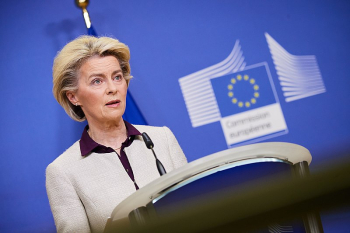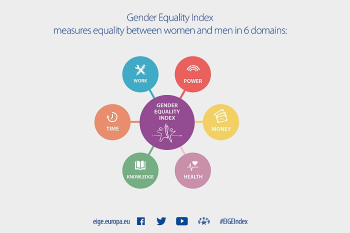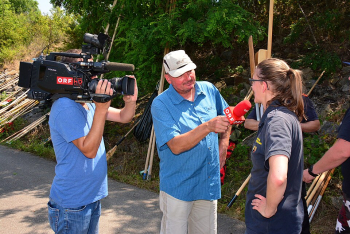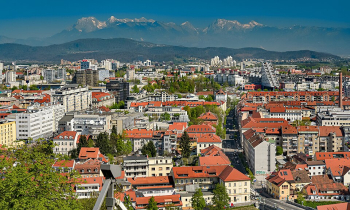A certain approach to the study of issues of society, and democracy as its most important element, is called the scientific method. It helps to create directions for research activities aimed at establishing objective patterns of development of the main historical types of democratic governance, including in its modern forms. Researchers identify several groups of methods used in political science analysis: general scientific, socio-humanitarian and special. General scientific methods consist of two main components or subgroups of cognitive means: logical and heuristic methods, and philosophical and axiological principles for the study of political life. There are general scientific methods such as induction and deduction, analysis and synthesis, diagnosis and prognosis, definition and classification, comparison and analogy, descriptive and specific description and abstract explanatory interpretation, observation and experiment, strategic analysis and logical-mathematical modelling, etc. These methods are also called general-logical. Socio-humanitarian methods include methods of historical comparative and synchronous comparative research, analysis of documents and sources. Special scientific methods include techniques developed by political science itself as modifying or combining other methods into special tools used in political objects analyzing, for instance, simulating political situations using elements of game theory or rating expert assessments of political leaders with scaling, comparative analysis of states and parties, carried out using computer technology. Methods containing attitudes and criteria for a certain understanding and interpretation of political phenomena are called approaches. For example, a psychological approach that helps to study a social reality based on the subjective vision of this reality by a certain individual placed in certain socio-political conditions, in a psychological environment; an economic approach characterized by the determination of a policy by an economy that is its concentrated expression; a sociological approach, meaning the study of the political system, society, party in terms of the interests of the social groups that constitute it, the social structure of the subject being studied, the social statuses and roles played by the individuals that make this group; regulatory value approach, according to which political phenomena are assessed in terms of compliance with the norms of morality, principles of justice and the common good. There are three groups of methods in the political science encyclopedic dictionary used in the study of political processes, including democratic ones: comparative historical, empirical and systemic. Comparative and historical methods include methods of historical description, specific analysis, comparative, periodization, chronological, prognostic, and provide an opportunity to study political phenomena, both in close connection with the historical situation and in qualitative change at various stages of development, making it possible to identify the genetic relationship, their typological connections, differences, allow to cover the phenomenon of democracy as a whole, but not in any part of it. Empirical approaches to political research are associated with the practical need for objective knowledge of political reality related to the participation of citizens in politics. A significant place in empirical research is given to the issue of political behaviour, the study of political culture, the study of the influence of various factors on the political process, the system analysis of large and small political structures, the comprehensive study of political governance, the structural and political analysis of political institutions, etc. Systemic approaches make it possible to study politics as a complex process, identify the most significant elements on the general background of the development of a political phenomenon, to follow their interdependence and interaction. In order to classify the methods of political science research, their division into qualitative and quantitative is also used. The first ones rely on the study and definition of qualitative features and properties of political objects, the second ones rely on the measurement of various parameters using mathematical formalization. However, in modern studies, it is sometimes quite difficult to define the boundaries between qualitative and quantitative methods.
Latest News
Over 10 million Ukrainians require humanitarian aid as UN warns of harsh winter and ongoing displacement
 Over 10 million Ukrainians require humanitarian aid as UN warns of harsh winter and ongoing displacement
Over 10 million Ukrainians require humanitarian aid as UN warns of harsh winter and ongoing displacement
More than 10 million Ukrainians are in urgent need of humanitarian assistance, the United Nations refugee agency (UNHCR) has reported,...
Read More... Address by President von der Leyen at the European Employment and Social Rights Forum
 Address by President von der Leyen at the European Employment and Social Rights Forum
Address by President von der Leyen at the European Employment and Social Rights Forum
“Check against delivery”
Read More... Belgium backs France’s expanded nuclear deterrence plan as Macron seeks stronger European defence
 Belgium backs France’s expanded nuclear deterrence plan as Macron seeks stronger European defence
Belgium backs France’s expanded nuclear deterrence plan as Macron seeks stronger European defence
Belgium will take part in a new French-led nuclear deterrence initiative, Prime Minister Bart De Wever confirmed, marking a significant...
Read More... EU gender employment gap in 2024: why women still lag behind at work
 EU gender employment gap in 2024: why women still lag behind at work
EU gender employment gap in 2024: why women still lag behind at work
EU gender employment gap: progress made, inequality persists
Read More... Press freedom in Europe under fire: new report warns of rising attacks, jailings and political pressure on journalists
 Press freedom in Europe under fire: new report warns of rising attacks, jailings and political pressure on journalists
Press freedom in Europe under fire: new report warns of rising attacks, jailings and political pressure on journalists
Journalists across Europe are facing a rapidly deteriorating working environment marked by violence, intimidation and legal persecution,...
Read More... Women now hold over a third of EU managerial roles, but gaps remain
 Women now hold over a third of EU managerial roles, but gaps remain
Women now hold over a third of EU managerial roles, but gaps remain
In 2024, women occupied 35.2% of managerial positions across the European Union, marking a steady rise from 31.8% a decade earlier, according...
Read More... EU approves €266.8 million payment to Slovenia under NextGenerationEU recovery plan
 EU approves €266.8 million payment to Slovenia under NextGenerationEU recovery plan
EU approves €266.8 million payment to Slovenia under NextGenerationEU recovery plan
The European Commission has given the green light to Slovenia’s fifth payment request worth €266.8 million under NextGenerationEU,...
Read More... Belgium’s Foreign Minister: strikes on Iran breach international law but are ‘justified for global security’
 Belgium’s Foreign Minister: strikes on Iran breach international law but are ‘justified for global security’
Belgium’s Foreign Minister: strikes on Iran breach international law but are ‘justified for global security’
Belgium’s foreign minister, Maxime Prévot, said on Monday that recent American and Israeli military strikes on Iran violated international...
Read More... EU unveils OceanEye initiative, pledges €50 million and pushes global alliance to safeguard the world’s oceans
 EU unveils OceanEye initiative, pledges €50 million and pushes global alliance to safeguard the world’s oceans
EU unveils OceanEye initiative, pledges €50 million and pushes global alliance to safeguard the world’s oceans
The European Union has launched OceanEye, a new flagship initiative aimed at strengthening global ocean monitoring, as Ursula von der...
Read More... Must Read
-
 Zurich introduces Eruv, creating a Sabbath-friendly public zone for Jewish life
Zurich has quietly drawn a new kind of line across the city — one that cannot be seen at first glance, yet carries deep religious and social meaning. Spanning severalRead More...
Zurich introduces Eruv, creating a Sabbath-friendly public zone for Jewish life
Zurich has quietly drawn a new kind of line across the city — one that cannot be seen at first glance, yet carries deep religious and social meaning. Spanning severalRead More... -
 Zurab Musinyan: “Let my case lie at door of Russian special services combating international terrorism…”
Specialized Oil-Loading Seaport Vitino captured by Russian security officials through hostage taking keeps on being a subject of carve-up and litigations by Russian and international companies....Read More...
Zurab Musinyan: “Let my case lie at door of Russian special services combating international terrorism…”
Specialized Oil-Loading Seaport Vitino captured by Russian security officials through hostage taking keeps on being a subject of carve-up and litigations by Russian and international companies....Read More... -
 Young Europeans losing faith in democracy
Recent findings from a comprehensive survey conducted by the YouGov institute for the Tui Foundation reveal a concerning trend among Europe’s youth: a growingRead More...
Young Europeans losing faith in democracy
Recent findings from a comprehensive survey conducted by the YouGov institute for the Tui Foundation reveal a concerning trend among Europe’s youth: a growingRead More... -
 World Refugee Day: Joint Statement by the European Commission and the High Representative
No country, no region in the world has been spared from the impact of COVID-19. The virus is exacerbating existing inequalities and has a disproportionate effect on refugees,Read More...
World Refugee Day: Joint Statement by the European Commission and the High Representative
No country, no region in the world has been spared from the impact of COVID-19. The virus is exacerbating existing inequalities and has a disproportionate effect on refugees,Read More... -
 World peace under strain — yet some countries still shine
As a storm of conflicts, rising militarisation and geopolitical fragmentation rattles the globe, the annual Global Peace Index 2025 paints a soberingRead More...
World peace under strain — yet some countries still shine
As a storm of conflicts, rising militarisation and geopolitical fragmentation rattles the globe, the annual Global Peace Index 2025 paints a soberingRead More... -
 Women still a minority among Flemish professors despite gains elsewhere
Women account for just one in three professors and visiting professors at Flemish universities, according to new figures released on Tuesday by Statistiek Vlaanderen.Read More...
Women still a minority among Flemish professors despite gains elsewhere
Women account for just one in three professors and visiting professors at Flemish universities, according to new figures released on Tuesday by Statistiek Vlaanderen.Read More... -
 Women now hold over a third of EU managerial roles, but gaps remain
In 2024, women occupied 35.2% of managerial positions across the European Union, marking a steady rise from 31.8% a decade earlier, according to the latest EU laborRead More...
Women now hold over a third of EU managerial roles, but gaps remain
In 2024, women occupied 35.2% of managerial positions across the European Union, marking a steady rise from 31.8% a decade earlier, according to the latest EU laborRead More...
Latest News
Over 10 million Ukrainians require humanitarian aid as UN warns of harsh winter and ongoing displacement
 Over 10 million Ukrainians require humanitarian aid as UN warns of harsh winter and ongoing displacement
Over 10 million Ukrainians require humanitarian aid as UN warns of harsh winter and ongoing displacement
More than 10 million Ukrainians are in urgent need of humanitarian assistance, the United Nations refugee agency (UNHCR) has reported,...
Read More... Address by President von der Leyen at the European Employment and Social Rights Forum
 Address by President von der Leyen at the European Employment and Social Rights Forum
Address by President von der Leyen at the European Employment and Social Rights Forum
“Check against delivery”
Read More... Belgium backs France’s expanded nuclear deterrence plan as Macron seeks stronger European defence
 Belgium backs France’s expanded nuclear deterrence plan as Macron seeks stronger European defence
Belgium backs France’s expanded nuclear deterrence plan as Macron seeks stronger European defence
Belgium will take part in a new French-led nuclear deterrence initiative, Prime Minister Bart De Wever confirmed, marking a significant...
Read More... EU gender employment gap in 2024: why women still lag behind at work
 EU gender employment gap in 2024: why women still lag behind at work
EU gender employment gap in 2024: why women still lag behind at work
EU gender employment gap: progress made, inequality persists
Read More... Press freedom in Europe under fire: new report warns of rising attacks, jailings and political pressure on journalists
 Press freedom in Europe under fire: new report warns of rising attacks, jailings and political pressure on journalists
Press freedom in Europe under fire: new report warns of rising attacks, jailings and political pressure on journalists
Journalists across Europe are facing a rapidly deteriorating working environment marked by violence, intimidation and legal persecution,...
Read More... Women now hold over a third of EU managerial roles, but gaps remain
 Women now hold over a third of EU managerial roles, but gaps remain
Women now hold over a third of EU managerial roles, but gaps remain
In 2024, women occupied 35.2% of managerial positions across the European Union, marking a steady rise from 31.8% a decade earlier, according...
Read More... EU approves €266.8 million payment to Slovenia under NextGenerationEU recovery plan
 EU approves €266.8 million payment to Slovenia under NextGenerationEU recovery plan
EU approves €266.8 million payment to Slovenia under NextGenerationEU recovery plan
The European Commission has given the green light to Slovenia’s fifth payment request worth €266.8 million under NextGenerationEU,...
Read More... Belgium’s Foreign Minister: strikes on Iran breach international law but are ‘justified for global security’
 Belgium’s Foreign Minister: strikes on Iran breach international law but are ‘justified for global security’
Belgium’s Foreign Minister: strikes on Iran breach international law but are ‘justified for global security’
Belgium’s foreign minister, Maxime Prévot, said on Monday that recent American and Israeli military strikes on Iran violated international...
Read More... EU unveils OceanEye initiative, pledges €50 million and pushes global alliance to safeguard the world’s oceans
 EU unveils OceanEye initiative, pledges €50 million and pushes global alliance to safeguard the world’s oceans
EU unveils OceanEye initiative, pledges €50 million and pushes global alliance to safeguard the world’s oceans
The European Union has launched OceanEye, a new flagship initiative aimed at strengthening global ocean monitoring, as Ursula von der...
Read More... Must Read
-
 Zurich introduces Eruv, creating a Sabbath-friendly public zone for Jewish life
Zurich has quietly drawn a new kind of line across the city — one that cannot be seen at first glance, yet carries deep religious and social meaning. Spanning severalRead More...
Zurich introduces Eruv, creating a Sabbath-friendly public zone for Jewish life
Zurich has quietly drawn a new kind of line across the city — one that cannot be seen at first glance, yet carries deep religious and social meaning. Spanning severalRead More... -
 Zurab Musinyan: “Let my case lie at door of Russian special services combating international terrorism…”
Specialized Oil-Loading Seaport Vitino captured by Russian security officials through hostage taking keeps on being a subject of carve-up and litigations by Russian and international companies....Read More...
Zurab Musinyan: “Let my case lie at door of Russian special services combating international terrorism…”
Specialized Oil-Loading Seaport Vitino captured by Russian security officials through hostage taking keeps on being a subject of carve-up and litigations by Russian and international companies....Read More... -
 Young Europeans losing faith in democracy
Recent findings from a comprehensive survey conducted by the YouGov institute for the Tui Foundation reveal a concerning trend among Europe’s youth: a growingRead More...
Young Europeans losing faith in democracy
Recent findings from a comprehensive survey conducted by the YouGov institute for the Tui Foundation reveal a concerning trend among Europe’s youth: a growingRead More... -
 World Refugee Day: Joint Statement by the European Commission and the High Representative
No country, no region in the world has been spared from the impact of COVID-19. The virus is exacerbating existing inequalities and has a disproportionate effect on refugees,Read More...
World Refugee Day: Joint Statement by the European Commission and the High Representative
No country, no region in the world has been spared from the impact of COVID-19. The virus is exacerbating existing inequalities and has a disproportionate effect on refugees,Read More... -
 World peace under strain — yet some countries still shine
As a storm of conflicts, rising militarisation and geopolitical fragmentation rattles the globe, the annual Global Peace Index 2025 paints a soberingRead More...
World peace under strain — yet some countries still shine
As a storm of conflicts, rising militarisation and geopolitical fragmentation rattles the globe, the annual Global Peace Index 2025 paints a soberingRead More... -
 Women still a minority among Flemish professors despite gains elsewhere
Women account for just one in three professors and visiting professors at Flemish universities, according to new figures released on Tuesday by Statistiek Vlaanderen.Read More...
Women still a minority among Flemish professors despite gains elsewhere
Women account for just one in three professors and visiting professors at Flemish universities, according to new figures released on Tuesday by Statistiek Vlaanderen.Read More... -
 Women now hold over a third of EU managerial roles, but gaps remain
In 2024, women occupied 35.2% of managerial positions across the European Union, marking a steady rise from 31.8% a decade earlier, according to the latest EU laborRead More...
Women now hold over a third of EU managerial roles, but gaps remain
In 2024, women occupied 35.2% of managerial positions across the European Union, marking a steady rise from 31.8% a decade earlier, according to the latest EU laborRead More...
Methods for European democracy studying


